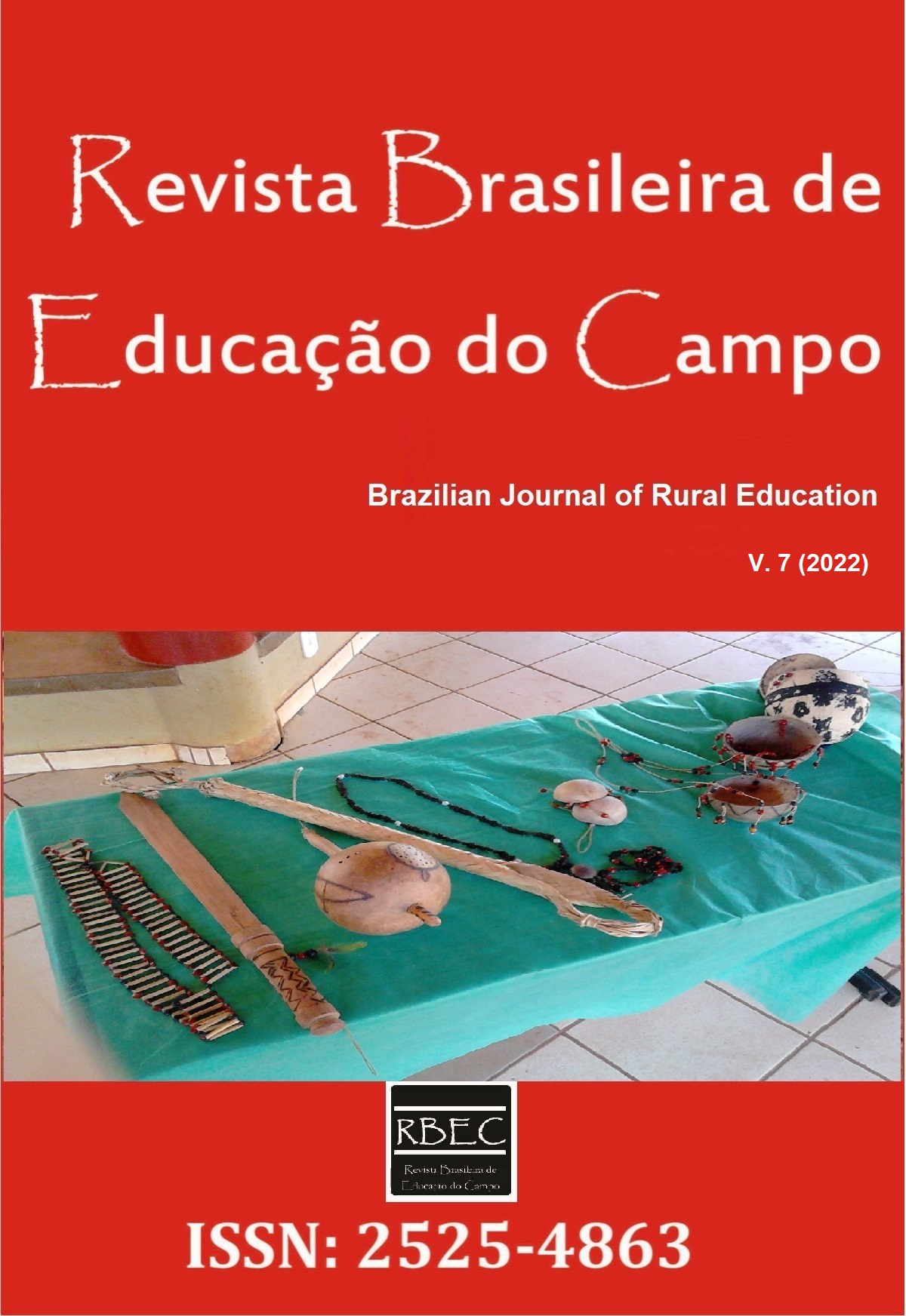El contexto amazónico y la formación de profesores de campo en Amazonas
DOI :
https://doi.org/10.20873/uft.rbec.e13333Mots-clés :
Amazonian context, Teacher Training, Rural Education.Résumé
ABSTRACT. The Amazon context expressed in this text results from the experience of teacher training actions of the Escola da Terra Program, in 46 municipalities in the State of Amazonas, through the Faculty of Education, of the Federal University of Amazonas, which offered the Course of Improvement in Rural Education – Pedagogical Practices. Escola da Terra is an action of the former Department of Continuing Education, Literacy, Diversity and Inclusion (SECADI/MEC), in partnership with Higher Education Institutions, with State and Municipal Education Departments. In this way, it was possible to provide continuing education to teachers who work in multi-grade schools in the Amazonian countryside. The objective of the study was to socialize this experience of continuing teacher education developed by the Faculty of Education/UFAM, whose work has been developed for more than five years in the form of an action research methodological approach. As a result, we found out that 2,724 teachers from the interior of the State were assisted, who developed works with a focus on the formative times of alternation, associating teaching with research. As for the final considerations of the study, it is possible to say that the actions are important for the training of teachers of the multigrade classes of rural schools in Amazonas, since they strengthen the culture of Amazonian rural subjects.
Téléchargements
Références
Arroyo, M. G. (2017). Passageiros da noite do trabalho para a EJA: itinerários pelo direito a uma vida justa. Petrópolis-RJ: Vozes.
Borges, H. S., & Mourão, A. R. B. (2018). Programa Escola da Terra e a Educação do Campo no Amazonas: Relato da formação de professores (as) das escolas multisseriadas. In Hage, S. A. M., Silva, H. S. A., & Fonseca, J. D. (Orgs.). Programa Escola da Terra: cartografia da diversidade e complexidade de sua execução no Brasil (s./p.). Curitiba: CRV.
Caldart, R. S. (2017). Caminhos para transformação da escola: trabalho, agroecologia e estudos nas escolas do campo. São Paulo: Expressão Popular.
Canudo, A., Luz, C. R. S., & Santos, P. C. M. (2020). Conflitos no Campo, Brasil, 2019. Centro de Documentação Dom Tómas Balduino. Goiânia-GO: CPT Nacional.
Censo Escolar. (2017). Recuperado de: http://www.amazonas.am.gov.br. Acesso em: 19 ̸04 ̸2020.
Diniz-Pereira, J. E., Diniz, M., & Souza, J. V. A. (2017). PRODOC: 20 anos de pesquisa sobre a profissão, a formação e a condição docente. Autêntica Editora. https://doi.org/10.31639/rbpfp.v10i18.181
Gomes, S., & Araújo, R. L. (2007). Amazônia: trabalho escravo, conflitos de terra e reforma agrária. Princípios, (90), s./p.
Molina, M. C., Martins, M. F. A., & Antunes-Rocha, M. I. (2021). Formação em Alternância nos cursos de Licenciatura em Educação do Campo desenvolvidos na UnB e na UFMG: articulando universidade, campo e escola numa perspectiva socioterritorial Revista Brasileira de Educação do Campo, 6, e11856. https://doi.org/10.20873/uft.rbec.e11856
Projeto Político-Pedagógico do Curso de Aperfeiçoamento em Educação do Campo – Práticas Pedagógicas. (2013). Manaus-AM. Faced/UFAM.
Santos, R. B. (2017). História da educação do campo no Brasil: o protagonismo dos movimentos sociais. Revista Teias, 18(51), 210-224. https://doi.org/10.12957/teias.2017.24758
Silva, C. A. (2016). A História das populações tradicionais na Amazônia e a terra como patrimônio cultural. In Borges, H. S., & Mourão, A. R. B. (Orgs.). Trabalho e Educação do/no Campo: agricultura familiar, agroecologia e alfabetização ecológica (s./p.). Manaus: UFAM.
Viero, J., & Medeiros, L. M. (2018). Princípios e concepções da educação do campo. Santa Maria, RS: UFSM, NTE.
Téléchargements
Publié-e
Comment citer
Numéro
Rubrique
Licence
Proposal for Copyright Notice Creative Commons
1. Policy Proposal to Open Access Journals
Authors who publish with this journal agree to the following terms:
A. Authors retain copyright and grant the journal right of first publication with the work simultaneously licensed under the Creative Commons Attribution License that allows sharing the work with recognition of its initial publication in this journal.
B. Authors are able to take on additional contracts separately, non-exclusive distribution of the version of the paper published in this journal (ex .: publish in institutional repository or as a book), with an acknowledgment of its initial publication in this journal.
C. Authors are permitted and encouraged to post their work online (eg .: in institutional repositories or on their website) at any point before or during the editorial process, as it can lead to productive exchanges, as well as increase the impact and the citation of published work (See the Effect of Open Access).














